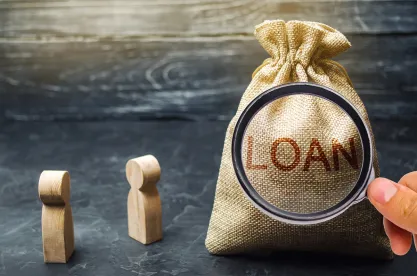As the largest corporate relief package in US history, the CARES Act likely will produce an unparalleled number of government investigations in the months and years to come. Companies that receive assistance should be prepared for increased government scrutiny.
IN DEPTH
Just weeks after passage, much-needed money from the $2 trillion Coronavirus Aid, Relief, and Economic Security (CARES) Act relief package began flowing from the US Department of the Treasury. With the disbursement of government money have already come requests for information from the US government. The US Securities and Exchange Commission (SEC) Division of Enforcement has apparently initiated a quasi-sweep regarding certain Paycheck Protection Program (PPP) loan recipients. With approximately $1 trillion in loans and grants designated for US businesses, the CARES Act is the largest corporate relief package in US history. If history teaches anything, the unparalleled size and scope of today’s relief package will produce an unparalleled number of investigations in the months and years to come. Front-page news reports of investigations into loan recipients and providers of protective equipment have already begun.
The CARES Act Gives Sweeping Powers to Subpoena and Investigate
The CARES Act established oversight bodies equipped with subpoena power and the ability to make criminal referrals to the US Department of Justice (DOJ). The law institutes three separate entities to ensure that relief funds are disbursed and used in accordance with a panoply of laws, regulations, interim rules and agency guidance: the Special Inspector General for Pandemic Recovery (SIGPR), the Pandemic Response Accountability Committee (PRAC) and a Congressional Oversight Commission. Both SIGPR and PRAC have authorization to conduct civil investigations backed by subpoenas and the ability to make criminal referrals. SIGPR and PRAC are required to report to the attorney general whenever either “reasonably believes” there has been a violation of a federal criminal law. The Congressional Oversight Committee will be equipped with broad oversight power over federal agencies and private entities receiving funds.
Beyond these newly formed oversight bodies, the government has already begun criminal and civil investigations. As in previous financial crises, the DOJ has formed a taskforce composed of DOJ prosecutors and US attorneys’ offices across the country to investigate and prosecute COVID-19-related fraud. The SEC similarly signaled that it is closely monitoring financial fraud and market integrity issues in the midst of this crisis. In the month since the government initiated the PPP loan program, the SEC has already started making requests to registrants who have disclosed the receipt of such loans in their filings, including by requesting information regarding the registrants’ qualification for PPP loans, their ability to continue operations, and the effect of COVID-19 on their business. And there is no doubt that private relators and their law firms are investigating potential False Claims Act (FCA) claims to bring on behalf of the government, particularly given the relief funds dispensed to the healthcare industry, which is often the focus of FCA relators.
Lessons from the Past
This oversight and enforcement structure will feel familiar to those who were subject to government scrutiny in connection with previous federal bailouts. As part of the 1989 Savings & Loan bailout, Congress passed the Financial Institutions Reform Recovery and Enforcement Act, which retooled federal oversight; established a National Commission on Financial Institution Reform, Recovery, and Enforcement; and provided additional funding and authorization to DOJ to prosecute related crimes. DOJ formed an expanded fraud taskforce known as ThriftCon. In response to the 2008 financial crisis, Congress established the Office of the Special Inspector General for TARP (SIGTARP), the Financial Stability Oversight Board (FSOB) and a Congressional Oversight Panel. While similar to PRAC, the FSOB lacked the subpoena enforcement power that the pandemic committee has been granted. DOJ also formed the Financial Fraud Enforcement Taskforce to investigate the fallout from financial fraud, as it did in the 1980s. The SEC joined with DOJ, Treasury and the US Department of Housing and Urban Development in an interagency Financial Fraud Enforcement Task Force, and the SEC aggressively pursued financial and accounting fraud investigations.
These past bailouts led to a significant number of civil and criminal investigations, some of which remain etched in public memory. By 1992, there were more than 5,000 criminal investigations opened in response to 30,000 bank regulator referrals from the Savings & Loan crisis, and more than 1,100 criminal prosecutions of individuals involved in related fraud. Of these prosecutions and investigations, the Federal Bureau of Investigation and DOJ created a “top 100″ list involving approximately 300 institutions and 600 individuals who were aggressively prosecuted.
Even though the civil investigators from the 2008 financial crisis made far fewer criminal referrals than in the Savings & Loan crisis, the 2008 crisis investigations led to considerable recovery for the US government—along with notable criminal investigations. In the years following the great recession, SIGTARP’s work led to 381 criminal convictions and approximately $11 billion collected from its investigations. DOJ obtained more than $40 billion in fines and settlements connected to the mortgage crisis.
Heroes and villains will again be cast by government investigators as they review how COVID-19 relief money is disbursed and used. And more broadly, to paraphrase the Supreme Court of the United States in Grunewald v. United States, many entities and individuals who find themselves subject to investigation will be ensnared by ambiguous circumstances. The CARES Act was quickly passed, and interim rules and guidance regarding the disbursement of relief funds have accordingly been ambiguous, confusing and still evolving. CARES Act recipients nonetheless need to self-certify that they qualify for relief, and that their applications are both accurate and in accordance with applicable laws and regulations. If financial records used in the application are inaccurate, or if controls and compliance processes are lacking, that could create liability. The receipt of federal funds also creates additional risk that unrelated misconduct, mistakes or financial errors may be identified and investigated. Companies that receive assistance should be prepared for history to repeat itself: with the disbursement of government money comes increased scrutiny and second guessing in an effort to recoup the government’s costs.
This is “déjà vu all over again” for the McDermott team, which has extensive experience helping clients practice effective compliance to help avoid the waves of inquiries that come from government regulators in government bailouts—and, if circumstances require it, respond to any inquiries that may come.






 />i
/>i

